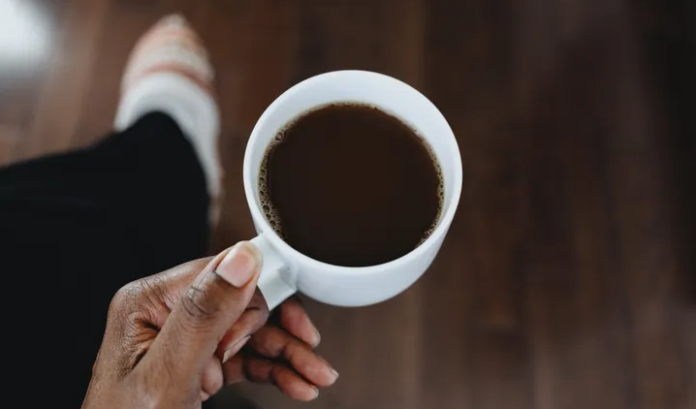Most of us know that certain foods, such as those high in fats, sugars, and salt, can impact our menstrual cramps. These foods have been found to trigger the production of prostaglandins, hormones that cause the uterus to contract during menstruation.
An excessive release of prostaglandins can lead to increased cramping and pain. But what about coffee? Surprisingly, your morning cup of java may not be off the hook when it comes to affecting your period, according to a research review conducted by the North American Menopause Society (NAMS) in 2022.
Dr Monica Christmas, a NAMS member not involved in the study, explained to Medical News Today that certain foods, including refined sugar, cooking oils, trans fats, dairy products, processed and red meat, refined grains, and alcohol, are highly inflammatory.
[ Everyone Has Haemorrhoids. Here’s How To Keep Them Happy ]
These “inflammatory foods” are believed to trigger an increased release of prostaglandins. Elevated prostaglandin release is associated with dysmenorrhea, which is characterized by increased vasoconstriction of the blood vessels supplying the uterine musculature. This results in uterine cramping due to decreased blood flow to the uterus.
The review conducted by NAMS found that caffeine, which is present in coffee, is one of the inflammatory compounds that may affect women’s period cramps.
Women’s health dietitian Elizabeth Ward, MS, RDN, also noted that excessive caffeine consumption could intensify menstrual discomforts, leading to jitteriness, sleep problems, increased heart rate, and diarrhoea.
This can be particularly troublesome if you already experience digestive issues, such as period-related diarrhoea. Additionally, Ward added that caffeinated beverages like coffee can increase stomach acidity, which may exacerbate heartburn and indigestion during this time of the month.
The good news, or rather, the somewhat good news, is that you don’t necessarily have to give up coffee if it doesn’t cause you pain during your period. Everyone reacts differently to caffeine and their menstrual cycle.
Furthermore, research suggests that coffee may have an overall anti-inflammatory effect, although individual results may vary. Regarding PMS and the menstrual cycle as a whole, Ward stated, “I think it’s safe to say that there isn’t much evidence that caffeine affects the menstrual cycle.”
A cross-sectional study published in BMC Women’s Health in 2022 found that coffee drinkers tend to have shorter periods on average compared to those who do not regularly consume coffee.
Even if you do find that coffee affects your period, it may be more a matter of moderation rather than complete elimination.
Serah Sannoh, the lead author of the NAMS presentation mentioned earlier, explained to Medical News Today that even if someone doesn’t strictly follow an anti-inflammatory diet, reducing the intake of inflammatory foods should help decrease the inflammation that causes menstrual pain.
So, if coffee doesn’t typically affect your period (unfortunately, it does affect mine), and you can enjoy a caffeine buzz without experiencing any symptoms, then you can likely continue drinking it.
However, if you have noticed that your cramps intensify after consuming your morning cup of coffee, it might be wise to refrain from indulging in your beloved brew during that time of the month.
Catch up with the latest news from The Times Post on WhatsApp by following our channel. Click here to join.















